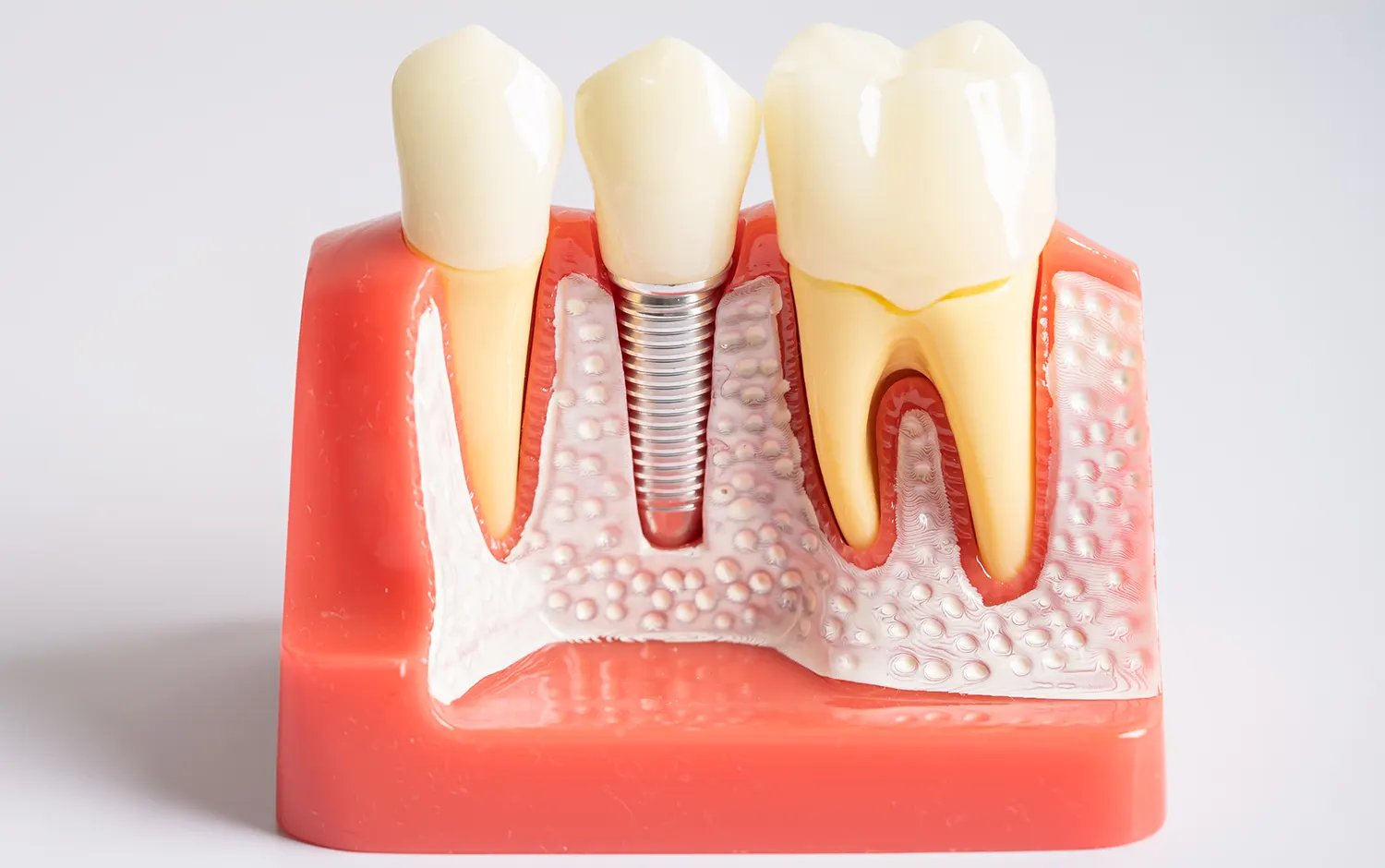
Dental implants can be a wonderful solution for tooth replacement, as they provide a natural look and feel that can last decades with proper care. At Murrayville Dental, we strive to ensure that our patients receive the very best results from their dental implant procedures. In that vein, we wanted to provide you with a full guide on how to care for your dental implants and what we do to set you up for long-term success.
Setting You Up for Success During the Dental Implant Procedure
Pre-Surgical Planning and Preparation: Before the implant surgery, our team at Murrayville Dental conducts thorough evaluations so that we can ensure the success of your dental implants. This includes detailed imaging and assessment of your oral health to determine the best placement for the implant.
Precision Placement: On the day of surgery, our skilled dental surgeons use advanced technology to place the implant accurately. This precision helps minimize trauma to the implant site, thereby promoting faster healing and reducing the risk of complications.
Immediate Aftercare: Post-surgery, we provide clear instructions and necessary pain medications to manage discomfort and support healing. Creating a stable blood clot at the implant site is crucial, so we advise patients to avoid rinsing, spitting, or using straws for the first 24 hours to ensure proper clot formation.
Tips for Long-Term Care of Dental Implants
To ensure your dental implants last a lifetime, it’s critical to practice good oral hygiene and follow these care tips:
- Maintain a Regular Dental Routine: Brushing and flossing your teeth two times a day is crucial to prevent plaque buildup around the implant. We suggest using a soft-bristled toothbrush to avoid irritating the gums and the implant site. Interdental brushes can also be effective for cleaning hard-to-reach areas around the implant.
- Use Antimicrobial Mouthwash: Rinsing daily with an antimicrobial mouthwash can help prevent bacterial buildup and promote oral health. Alternatively, warm salt water rinses can be soothing and effective for reducing inflammation.
- Choose the Right Toothpaste: We recommend non-abrasive toothpaste to avoid scratching the implant surface and irritating the gums. Speak with your dentist for specific toothpaste recommendations suited for implants.
- Eat a Balanced Diet: In the initial healing phase, stick to soft foods to avoid placing undue pressure on the implant. Long-term, maintaining a balanced diet that supports overall health is essential. Avoiding hard, tough, or sticky foods can also help protect the implant.
- Avoid Smoking and Limit Alcohol Consumption: Smoking, vaping and drinking alcohol can slow down your healing and increase the risk of implant failure. It’s best to avoid these habits, especially in the initial healing period after the dental implant procedure.
- Regular Dental Check-Ups: Regular dental visits are crucial for monitoring the health of your implants and natural teeth. At Murrayville Dental, we recommend check-ups at least twice a year to ensure everything is in good condition.
- Be Mindful of Clenching or Grinding: If you find that you grind your teeth at night, using a night guard can protect both your implants and natural teeth from excessive force. Our dental team can custom-fit a guard to ensure maximum protection.
- Manage Pain and Discomfort Appropriately: Post-surgery discomfort is common, but it should be manageable with prescribed pain medications. If pain persists or worsens, contact Murrayville Dental immediately for a follow-up.
- Pay Attention to Changes: Any changes in the feeling or appearance of your implant should be reported to your dentist immediately. Early dental intervention can prevent minor issues from becoming major problems.

What to Avoid After Implant Surgery
- Hard and Crunchy Foods: In the first few weeks post-surgery, avoid foods that require excessive chewing or are hard and crunchy. These can disrupt the healing implant site and delay recovery.
- Smoking: Smoking can impede blood flow to the gums and slow down the healing process. We advise all patients to quit smoking before and after the implant procedure for optimal results.
- Excessive Physical Activity: Strenuous physical activity should be limited for the first few days post-surgery to avoid increased bleeding or swelling at the implant site.
- Ignoring Oral Hygiene: Neglecting oral hygiene can lead to infections and other complications. Even when you’re experiencing discomfort post-surgery, it’s crucial to maintain a regular dental routine.
At Murrayville Dental in Langley, our commitment to improving your oral health doesn’t end after the dental implant procedure. By closely following these tips and maintaining regular dental visits, you can establish the longevity of your dental implants and reap the benefits of a beautiful, functional smile. Our team is here to support you every step of the way, from the initial implant surgery to long-term maintenance. For more information or to schedule an appointment, contact Murrayville Dental today.

